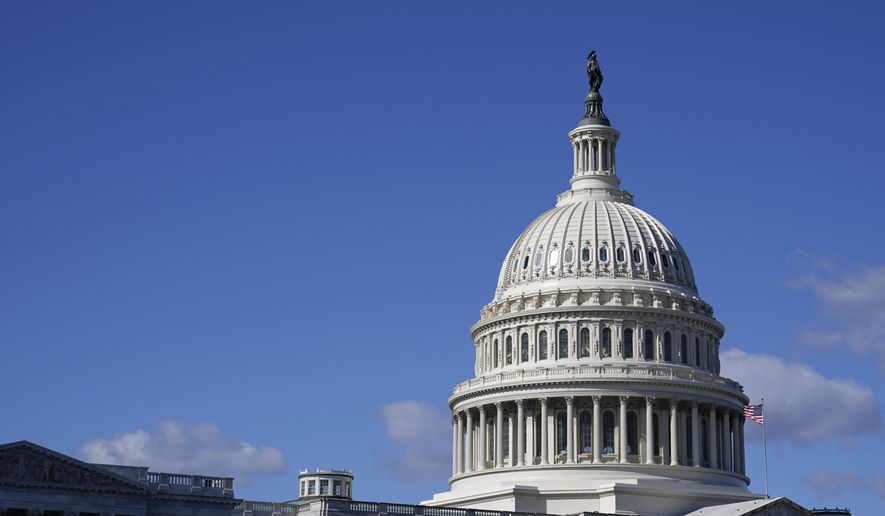The House on Wednesday approved a one-week extension of government funding and the Senate was expected to quickly follow suit this week as lawmakers from both parties eyed year-end deals.
The extra week of money kicks in Saturday, and buys Congress until Dec. 18 to approve a full-year spending bill to take the government through the rest of fiscal 2021.
Wednesday’s overwhelming 343-67 vote in the House highlighted the appetite on both sides of the aisle to avoid any shutdown brinkmanship.
“People are desperate. They are counting on us. We need to provide relief to working families, our schools, our children, small businesses, and communities across the nation,” said Rep. Rosa DeLauro, the Connecticut Democrat who will become chair of the House Appropriations Committee in the new Congress next year.
Senators must act before the end of the day Friday to prevent a lapse in funding, but leaders in the upper chamber don’t expect any hiccups.
The bigger question on Capitol Hill is whether the 2021 spending bill will be coupled with a coronavirus relief package. Negotiations on that legislation are moving on a parallel track, and both parties say if they reach a deal, it’s likely to be married to the spending bill.
Wednesday’s stopgap spending bill buys both teams of negotiators more time.
Sen. Richard Shelby, Alabama Republican and chairman of the Senate Appropriations Committee, said negotiators have settled on “probably 95%” of the issues in the 2021 spending bill, but the remainder are the tough ones.
He didn’t go into what they were, but another negotiator, Sen. Jon Tester, Montana Democrat, said there are still some stumbling blocks in Homeland Security spending, though nothing that would derail a final deal.
He said part of the problem is Congress’s penchant for buying itself additional negotiating time.
“I think we could have gotten this done by the 11th if we hadn’t gotten into the habit of settling deadlines and then never meeting them,” he said.
Federal departments and agencies have been running on stopgap funding since the fiscal year began Oct. 1.
Despite a new round of promises early in the year, Congress made no real attempt to pass its dozen annual spending bills on time or individually. Instead, lawmakers are once again turning to a massive package, dubbed an “omnibus” in Washington-speak, that will fund all of government in the same piece of legislation.
House Majority Leader Steny H. Hoyer, Maryland Democrat, said the fact that Congress is approving another stopgap bill is “a recognition of failure.”
“This is something we have to do to keep the government working. But we ought not to believe or pretend or represent this is the way we ought to do business,” he said.
He blamed the Senate, where lawmakers didn’t pass any of their versions of the spending bills this year. The House, by contrast, passed 10 of the 12.
• Stephen Dinan can be reached at sdinan@washingtontimes.com.




Please read our comment policy before commenting.